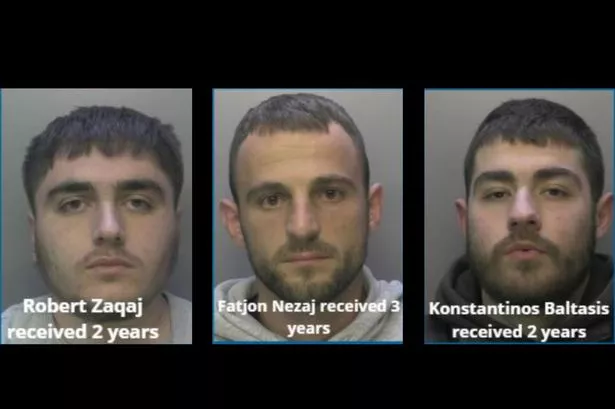There are currently estimated to be 982,000 people living with dementia in the UK and this is projected to rise to 1.4 million in 2040. The situation is set to worsen considerably on a global scale, with cases forecast to triple by 2050 as per the World Health Organisation.
The high-profile diagnosis of Bruce Willis with frontotemporal dementia (FTD) has heightened public attention towards this lesser-known form of dementia, which, along with Alzheimer's disease, impacts behaviour and language.
The NHS says dementia mainly affects older people, and after the age of 65, the likelihood of developing dementia roughly doubles every five years. However, for some dementia can develop earlier, presenting different issues for the person affected, their carer and their family.
There are around 540,000 carers of people with dementia in England. It is estimated that one in three people will care for a person with dementia in their lifetime. Half of them are employed and it’s thought that some 66,000 people have already cut their working hours to care for a family member, whilst 50,000 people have left work altogether.
There is a considerable economic cost associated with the disease estimated at £23 billion a year, which is predicted to triple by 2040. This is more than the cost of cancer, heart disease and stroke.
Stewart Mcginn, Managing Director at Baycroft Care Homes, highlighted the importance of recognising early warning signs associated with FTD: "FTD is a much less common type of dementia which also causes problems with behaviours and language, and typically is diagnosed in people from the age of 45 and up."
He added, "FTD is a slow and progressive disease and is sometimes initially misdiagnosed with schizophrenia, Alzheimer's or aphasia."
According to Mcginn, the disease primarily affects brain regions responsible for personality, behaviour, and speech – found at the frontal and temple areas. Consequently, symptoms often manifest in these domains.
With the goal of promoting timely diagnosis, the expert outlined several "early" indicators to watch for, including the persistent misplacement of items. While occasionally losing items like keys or glasses is common, a pattern of regular misplacement could signal "early" dementia onset.
Being forgetful and misplacing objects
Mcginn explained: "This could be continuously losing their glasses or finding items in strange places, like a TV remote in the fridge or food items with the cleaning products."
He added that tasks requiring organisation and planning might become too difficult for those suffering from dementia. As the condition progresses, it can become much "harder" to concentrate.
Difficulty talking
Mcginn also highlighted language problems as a potential sign of dementia, stating: "A sign that can indicate a person is suffering from dementia is having difficulty forming sentences or finding the right words during conversations."
He continued: "While everyone can forget the odd word from time to time, regularly struggling to remember words or substituting them in sentences with random words can indicate someone is suffering."
Memory issues
Memory loss, perhaps the best-known sign of the brain condition, is considered one of the earliest red flags pointing to cognitive decline. "Whether your loved one is frequently forgetting the names of people they know, or is unable to recall recent events or new information learned, it's best to get them checked out by a doctor," the expert advised.
Mood swings
Changes in mood, such as frequent mood swings, could be another tell-tale sign that someone has dementia. "This can be a person's mood quickly changing from calm to angry, or emotional, without reason, or if they become generally more withdrawn or anxious," Mcginn said.
Confusion surrounding time and place as a symptom
Sometimes people laugh off those moments where you've walked into a room and forgotten why, but when it comes to dementia, the stakes are much higher. Shedding light on the matter, one expert revealed: "For example, your elderly family member might become lost on a street they have walked down their whole life and struggle to find their way home." They added: "Your loved one might get confused about time, being unable to distinguish between their past and present."
Delving deeper, the expert shared: "This could include confusing family members with people from their past, like their own parents, and struggling to remember people from their present, like their grandchildren." If these signs start to appear in someone you know, McGinn underscores the urgency of seeing a GP as the crucial first step. Post consultation, referrals to appropriate specialists might be made if deemed necessary by the physician.




















